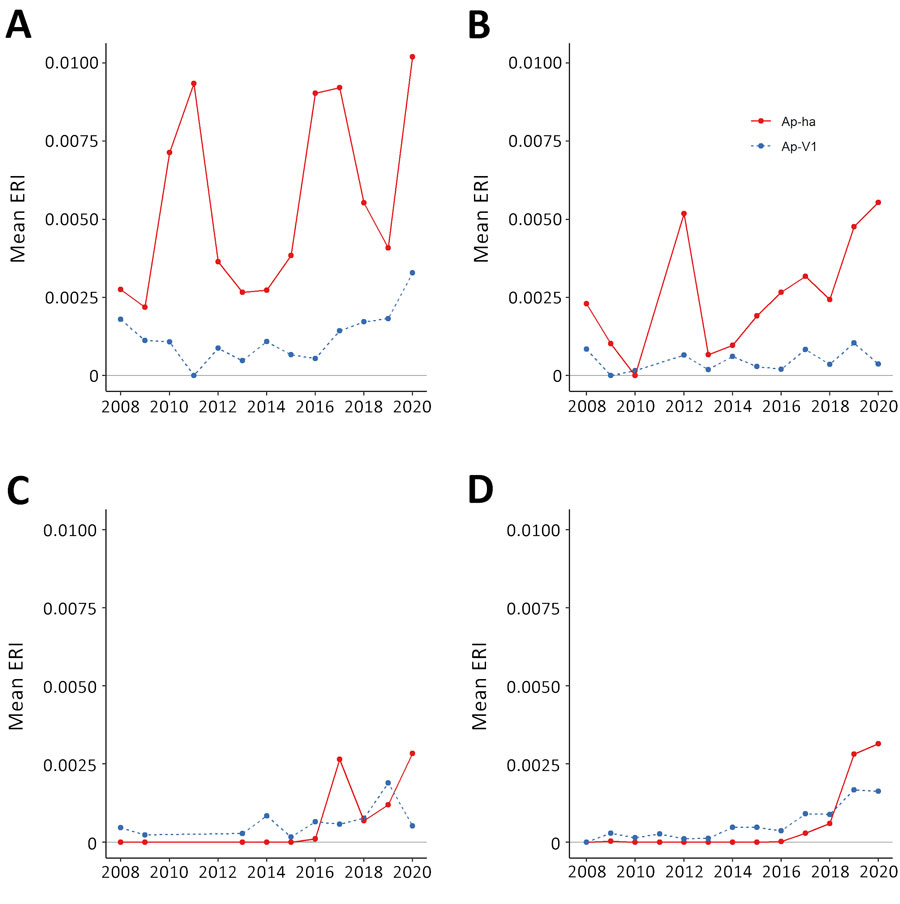Volume 29, Number 3—March 2023
Research
Associations of Anaplasma phagocytophilum Bacteria Variants in Ixodes scapularis Ticks and Humans, New York, USA
Figure 2

Figure 2. Mean ERI of pathogenic and nonpathogenic genetic variants of Anaplasma phagocytophilum bacteria in adult blacklegged ticks aggregated to regions of New York, 2008–2020. A) Hudson Valley region; B) Capital region; C) Central region; D) Western region. Ap-ha, human pathogenic variant of A. phagocytophilum bacteria; Ap-V1, nonpathogenic variant of A. phagocytophilum; ERI, entomological risk index.
1These authors contributed equally to this article.
2Retired.
3Current affiliation: US Department of Agriculture, Animal and Plant Health Inspection Service, Buffalo, NY 14213, USA.
Page created: January 12, 2023
Page updated: February 21, 2023
Page reviewed: February 21, 2023
The conclusions, findings, and opinions expressed by authors contributing to this journal do not necessarily reflect the official position of the U.S. Department of Health and Human Services, the Public Health Service, the Centers for Disease Control and Prevention, or the authors' affiliated institutions. Use of trade names is for identification only and does not imply endorsement by any of the groups named above.